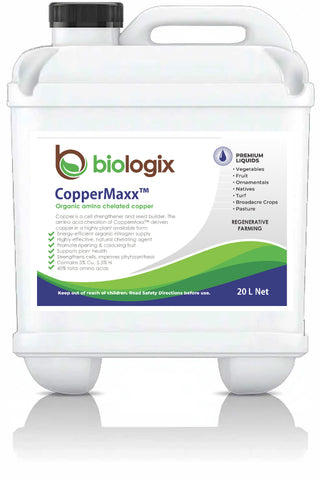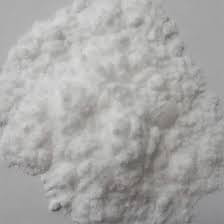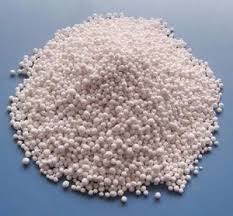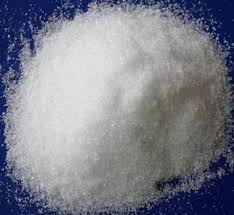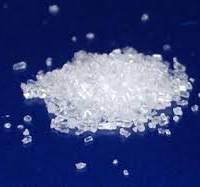
ProductDrop
Zinc sulphate (ZnSO₄) is a key source of zinc (Zn), an essential trace mineral for crops and pastures. It delivers significant benefits to plant health and productivity, especially in zinc-deficient soils, which can be a concern in some New Zealand (NZ) regions. Below is a concise overview for a grower, including deficiency symptoms and NZ-specific references.
Benefits of Zinc Sulphate to Crops and Pastures
-
Supports Hormone Production and Growth:
-
Zinc is crucial for the synthesis of auxin, a growth hormone that promotes cell elongation and root development.
-
It ensures proper shoot and leaf expansion, leading to vigorous plant growth.
-
Result: Stronger plants, increased pasture density, and higher crop yields.
-
-
Enhances Photosynthesis and Enzyme Activity:
-
Zinc activates enzymes involved in photosynthesis, carbohydrate metabolism, and protein synthesis.
-
It helps maintain chlorophyll levels, ensuring efficient energy production.
-
Result: Healthier, greener plants with improved growth rates, especially in crops like maize and cereals.
-
-
Improves Seed and Fruit Development:
-
Zinc is vital for pollen formation, fertilization, and seed set, directly impacting reproductive success.
-
In crops like apples, citrus, and cereals, it improves grain quality and fruit size.
-
Result: Higher yields and better-quality produce, such as denser grains in wheat or larger fruit in orchards.
-
-
Boosts Pasture Productivity:
-
In pastures, zinc supports grass and legume growth, particularly in clover, which is sensitive to zinc deficiency.
-
It promotes faster regrowth after grazing and improves forage quality.
-
Result: Increased dry matter production and better nutritional value for livestock.
-
-
Corrects Deficiency in NZ Soils:
-
Zinc deficiency is common in NZ’s sandy, volcanic, or high-pH soils, such as those in the Waikato and Northland regions, where zinc availability is low.
-
Applying zinc sulphate restores levels, ensuring plants can access this essential nutrient.
-
Result: Prevents yield losses and maintains consistent productivity.
-
-
Enhances Stress Tolerance:
-
Zinc helps plants cope with environmental stresses like drought or disease by supporting metabolic processes and reducing oxidative damage.
-
Result: More resilient crops and pastures, leading to stable yields under NZ’s variable climate conditions.
-
Deficiency Symptoms of Zinc in Crops and Pastures
Zinc deficiency shows distinct symptoms, often more pronounced in certain NZ soil types:
-
Small Leaves (“Little Leaf”): Leaves are smaller than normal, often seen in crops like maize, citrus, and apples, with shortened internodes.
-
Interveinal Chlorosis: Yellowing between veins, particularly in younger leaves, while veins remain green, common in cereals and pastures.
-
Stunted Growth: Plants exhibit rosetting (bunching of leaves), reduced shoot growth, and poor root development.
-
Poor Yield and Quality: In pastures, grasses and clover become sparse; in crops, grain or fruit production drops (e.g., maize shows white bud, and apples produce smaller fruit).
-
NZ-Specific Observations: Research from Massey University has noted zinc deficiency in maize and citrus on North Island volcanic soils, leading to yield reductions of 15–25% if uncorrected.
Practical Impact on Yield with NZ References
-
Crops: Studies in NZ, such as those by AgResearch, show that applying zinc sulphate to deficient soils can increase maize yields by 10–20% and improve apple yields by up to 15%, particularly in Northland and Waikato.
-
Pastures: In NZ dairy pastures, correcting zinc deficiency can boost dry matter production by 5–15%, supporting higher milk production, as noted in trials in the Waikato region.
-
NZ Context: Zinc deficiency is a recognized issue in NZ, especially in sandy or pumice soils in the North Island, according to the NZ Ministry for Primary Industries (MPI) guidelines. It’s also a concern in intensively farmed areas with high phosphorus levels, which can reduce zinc uptake.
Application Tips
-
Soil Testing: Test soil pH and zinc levels, as deficiency is common in NZ soils with pH > 7.0, sandy textures, or high phosphorus content.
-
Application Methods: Use zinc sulphate as a foliar spray (0.5–1% solution) for quick correction, or apply to soil (5–10 kg/ha) for longer-term benefits.
-
Timing: Apply early in the growing season or at the first sign of deficiency, especially during rapid growth phases in spring.
-
Caution: Avoid over-application, as excess zinc can cause toxicity, leading to reduced iron or copper uptake and stunted growth.
By using zinc sulphate to address zinc needs, you can enhance growth, reproductive success, and productivity in both crops and pastures, particularly in NZ’s zinc-deficient soils. If you’re working with a specific crop or region in NZ, I can provide more targeted advice!
We Also Recommend

